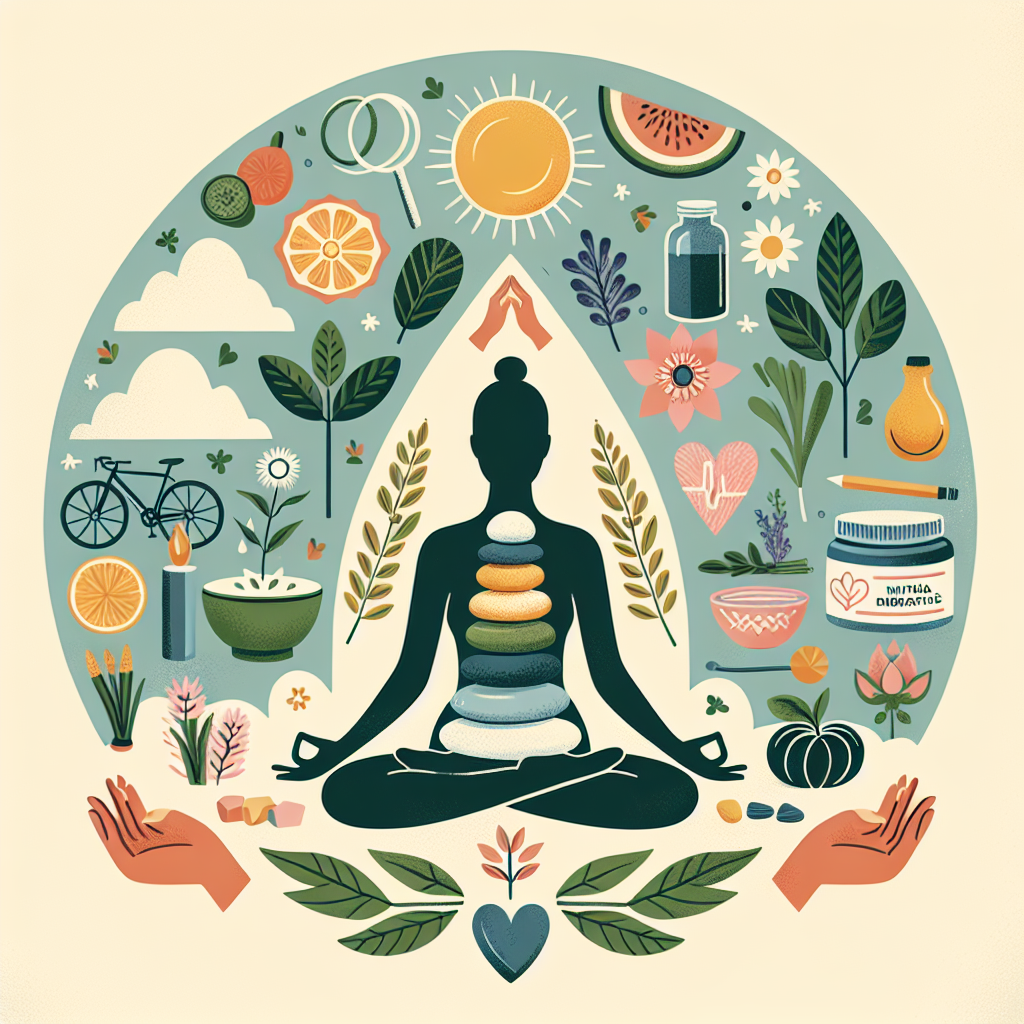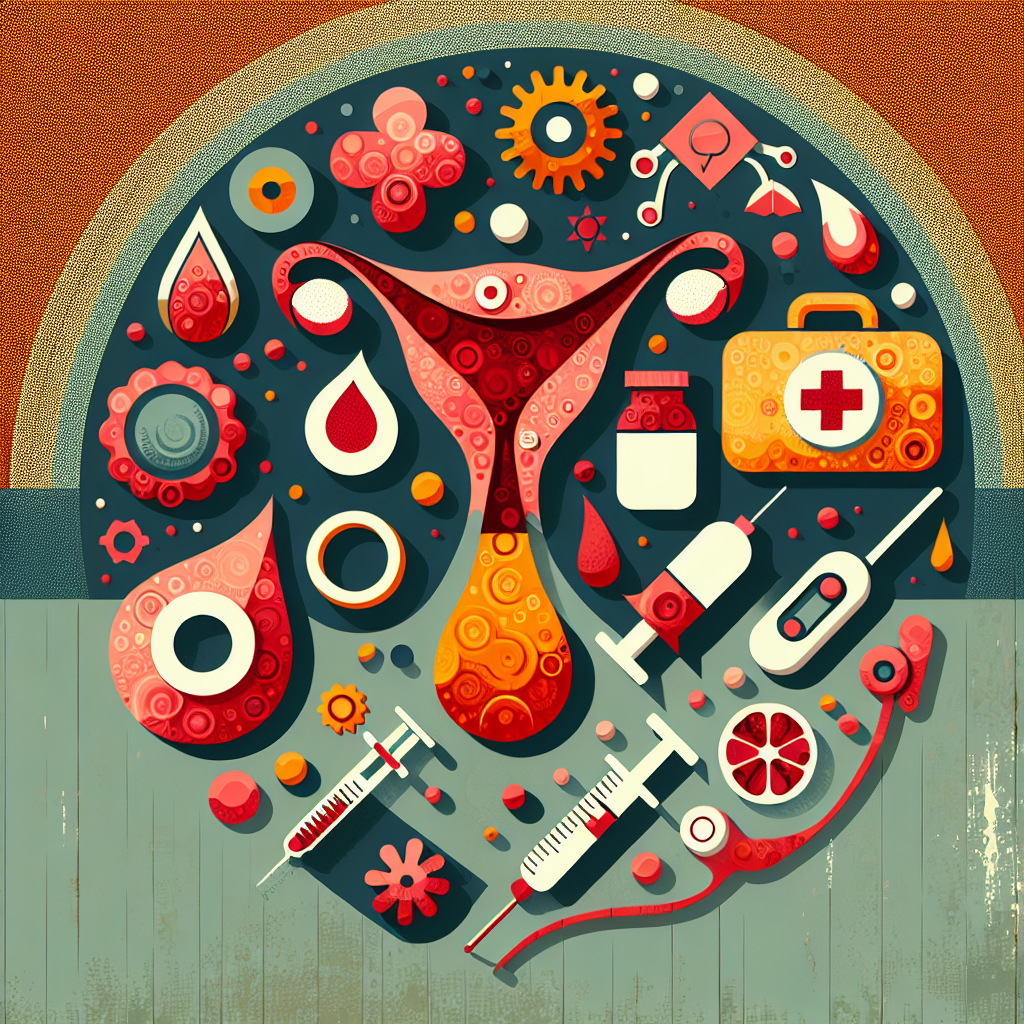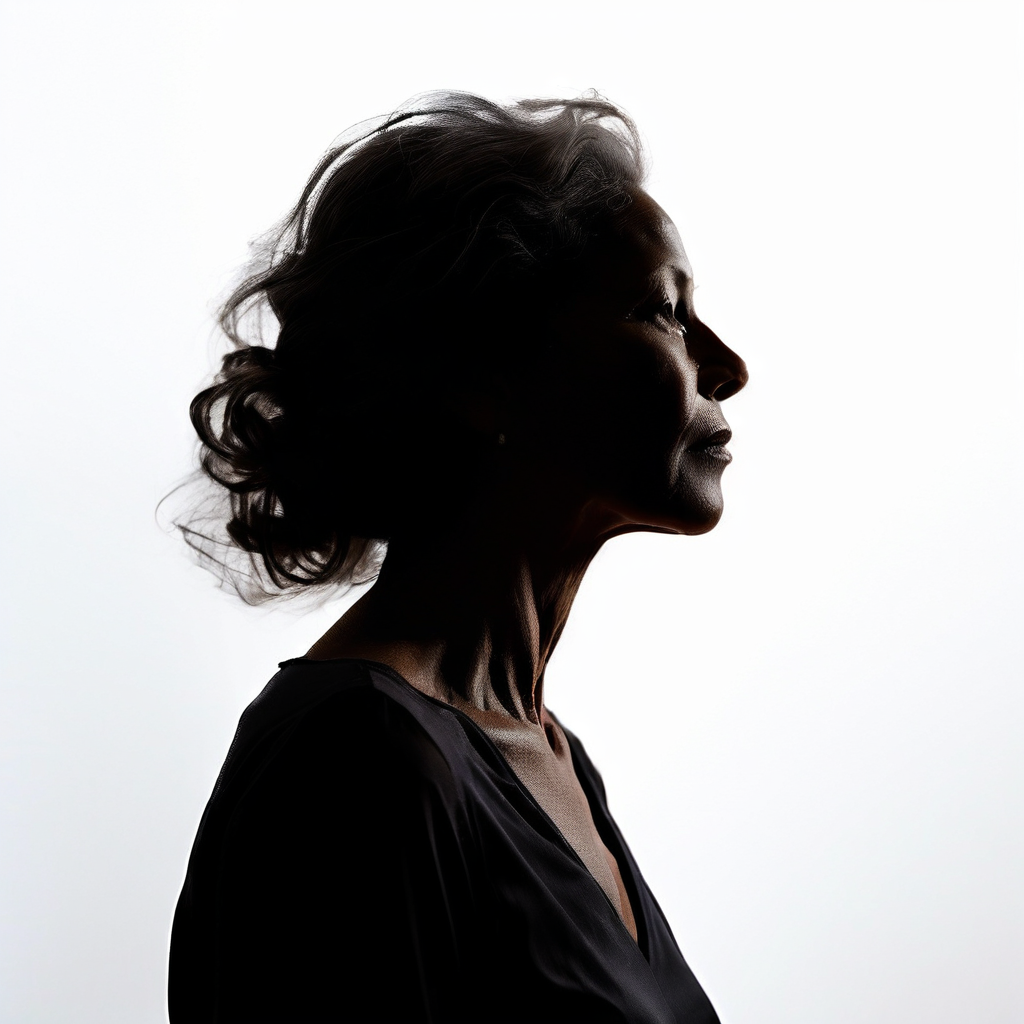
Navigating Menopause after Breast Cancer?
Discover natural remedies that empower you to tackle hot flashes and night sweats with humor and grace.
Explore the Following:
- Mind-body techniques
- Lifestyle changes
- Nutritional strategies
- The healing power of community
Reclaim your comfort and wellbeing.
Embracing the Change: Natural Remedies for Menopause After Breast Cancer
Hot flashes hitting you like a tropical vacation you never booked? Night sweats turning your bedsheets into a splash zone? Welcome to the wild world of menopause after breast cancer—a double whammy that deserves some serious TLC and a dash of humor to get through.
If you've conquered breast cancer (high five, warrior!), navigating menopause might feel like your next big challenge, especially when conventional hormone replacement therapy isn't always an option. But don't worry—Mother Nature has some tricks up her sleeve, and we're here to explore natural remedies for menopause after breast cancer that can help you feel more like yourself again.
Why Menopause After Breast Cancer Is a Unique Journey
When breast cancer treatment catapults you into menopause (hello, chemotherapy-induced menopause or surgical menopause after oophorectomy), the experience can be particularly intense. Many conventional treatments for menopause symptoms involve hormones that might be contraindicated after hormone-sensitive breast cancers.
Dr. Melanie Bone, a gynecologist specializing in cancer survivorship, explains: "Women who've had breast cancer often experience more severe menopausal symptoms, yet have fewer treatment options available to them. This makes natural remedies for menopause after breast cancer particularly valuable for this group."
The good news? You're not alone, and you have options that don't involve hormones or medications that might interfere with your cancer recovery.
Mind-Body Approaches: Your Mental Wellness Toolkit
Mindfulness Meditation: Calm in the Storm
When hot flashes strike, having a mental strategy can be as important as physical remedies. Research published in the Journal of Clinical Oncology found that mindfulness-based stress reduction techniques reduced the bothersomeness of hot flashes by 22% in breast cancer survivors.
Try this simple practice: When a hot flash begins, rather than fighting it, acknowledge it with "This is just a hot flash. It will pass." Focus on your breathing for 90 seconds (the average duration of a hot flash), and you might find it less disruptive.
Cognitive Behavioral Therapy: Reframing the Experience
CBT isn't just for anxiety—it's been shown to help women cope with menopause symptoms too. A study in The Lancet Oncology demonstrated that breast cancer survivors who participated in CBT sessions experienced significant improvements in their perception of hot flashes and night sweats.
"CBT helps women develop coping strategies that change how they experience menopausal symptoms, rather than eliminating the symptoms themselves," says Dr. Eleanor Smith, psycho-oncologist. "It's about changing your relationship with the symptoms."
Lifestyle Adjustments: Small Changes, Big Impact
Cooling Strategies: Becoming a Heat Management Expert
Simple environmental modifications can make a world of difference when managing hot flashes:
- Layer your clothing (embrace the onion approach!)
- Keep a small portable fan in your purse (your new best friend)
- Use cooling pillows and moisture-wicking bedding (game-changers for night sweats)
- Sip cold water throughout the day (stay hydrated, stay cooler)
"These practical strategies are some of the most effective natural remedies for menopause after breast cancer," notes Dr. Jennifer Lewis, oncologist. "They're safe, accessible, and can provide immediate relief."
Exercise: Moving Through Menopause
Physical activity isn't just good for your overall health—it's specifically beneficial for menopausal symptoms. The Women's Healthy Eating and Living (WHEL) Study found that breast cancer survivors who engaged in regular moderate exercise reported fewer hot flashes and better sleep quality.
Aim for 150 minutes of moderate activity weekly, but remember that even gentle movement counts:
- Walking (especially in nature)
- Swimming (bonus: the water keeps you cool)
- Yoga (more on this superstar later)
- Dancing (because why not make it fun?)
Nutritional Approaches: Eating Your Way to Relief
Phytoestrogen-Rich Foods: The Controversial Helpers
Here's where things get a bit complicated. Phytoestrogens (plant compounds with estrogen-like effects) can help some women with menopausal symptoms, but their safety after estrogen-receptor-positive breast cancer has been debated.
The latest research from the Journal of the National Cancer Institute suggests that moderate consumption of whole food sources of phytoestrogens (not supplements) appears safe for breast cancer survivors. Foods to consider include:
- Ground flaxseeds (1-2 tablespoons daily)
- Legumes like chickpeas and lentils
- Whole grains
"The key is moderation and choosing whole foods rather than isolated supplements," advises Dr. Sarah Johnson, oncology nutritionist. "These foods contain complex compounds that work differently than human estrogen."
Cooling Foods: Nature's Internal Air Conditioning
Some foods have natural cooling properties according to both traditional medicine systems and modern nutritional science:
- Cucumber
- Watermelon
- Mint
- Leafy greens
- Chrysanthemum tea
"I recommend my patients keep a food diary to identify their personal hot flash triggers," says Dr. Johnson. "Common culprits include spicy foods, alcohol, caffeine, and sugar—all of which can trigger or worsen hot flashes."
Herbal Allies: Plant Support for Menopause
Safe Herbs After Breast Cancer
Not all herbs that help with menopause symptoms are appropriate after breast cancer. Here are some that research suggests may be safe and effective as natural remedies for menopause after breast cancer:
Rhapontic Rhubarb (Rheum rhaponticum)
Unlike black cohosh and red clover (which remain controversial after breast cancer), rhapontic rhubarb has shown promise in clinical trials with breast cancer survivors. A study in the journal Menopause found it reduced hot flashes without estrogenic effects.
Peppermint and Lemon Balm
These cooling herbs can be enjoyed as teas or essential oils (for aromatherapy, not ingestion) and may provide relief during hot flashes.
American Ginseng
A randomized controlled trial published in the Journal of the National Cancer Institute found that American ginseng reduced cancer-related fatigue in survivors—a common complaint during menopause as well.
"Always discuss herbs with your oncologist before trying them," cautions Dr. Maria Chen, integrative oncologist. "Even natural remedies can interact with medications or have unexpected effects."
Acupuncture: Ancient Wisdom for Modern Challenges
Acupuncture has some of the strongest evidence among natural remedies for menopause after breast cancer. A meta-analysis published in JAMA Oncology found that acupuncture significantly reduced hot flash frequency and severity in breast cancer survivors.
"What makes acupuncture particularly valuable is that it addresses multiple symptoms simultaneously—hot flashes, sleep disturbances, and mood changes," explains Dr. Chen. "Many of my patients report improvements after just a few sessions."
Yoga and Tai Chi: Gentle Movement Medicine
Yoga: The All-in-One Solution
Yoga deserves special mention among natural remedies for menopause after breast cancer because it combines several beneficial elements:
- Physical movement
- Breath control (cooling breaths like Sitali can help during hot flashes)
- Mindfulness
- Community support
A study in the journal Cancer found that breast cancer survivors who practiced yoga twice weekly for 8 weeks reported 31% fewer hot flashes and significant improvements in sleep quality.
Tai Chi: Flowing Through the Change
This gentle Chinese practice combines flowing movements with deep breathing and has been shown to improve sleep quality and reduce stress in menopausal women. A study in Menopause found that tai chi reduced hot flash frequency by 35% in breast cancer survivors.
"The beauty of practices like yoga and tai chi is that they're gentle enough for women at any fitness level, even those still recovering from cancer treatments," says yoga therapist Lisa Rodriguez.
Creating Your Personalized Menopause Management Plan
The most effective approach to managing menopause after breast cancer is typically a combination of strategies tailored to your specific symptoms, preferences, and medical history.
Questions to Ask Your Healthcare Team:
- Are there any natural remedies I should specifically avoid given my cancer type and treatments?
- Can you refer me to an integrative oncologist familiar with menopause management?
- What symptom tracking methods do you recommend?
- Are there clinical trials for non-hormonal menopause treatments I might qualify for?
"I encourage my patients to think of managing menopause after breast cancer as an opportunity to create a wellness plan that supports their overall recovery and long-term health," says Dr. Bone. "The natural remedies that help with hot flashes often provide additional benefits for heart health, bone density, and emotional wellbeing."
Finding Your Menopause Tribe
Perhaps one of the most powerful natural remedies for menopause after breast cancer is community. Connecting with other women navigating similar challenges can provide emotional support, practical tips, and sometimes just the relief of a good laugh about the absurdities of hot flashes.
Organizations like the Living Beyond Breast Cancer and local cancer support centers often offer menopause-specific support groups. Online communities can also provide connection, though always verify medical information with your healthcare team.
Embracing the New Normal
Menopause after breast cancer represents yet another transition in a journey that has already included many challenges. While natural remedies can significantly improve your symptoms, it's also worth acknowledging that some degree of acceptance may be part of your path.
"I tell my patients that managing menopause after breast cancer is both a science and an art," says Dr. Chen. "The science involves finding evidence-based natural remedies that work for your body. The art is in creating a new relationship with your changing body—one based on compassion, patience, and even gratitude for all your body has carried you through."
Remember that exploring natural remedies for menopause after breast cancer isn't about rejecting conventional medicine—it's about expanding your options and finding complementary approaches that help you feel your best during this transition.
Here's to finding your cool, calm, and collected self again—hot flashes and all!
















